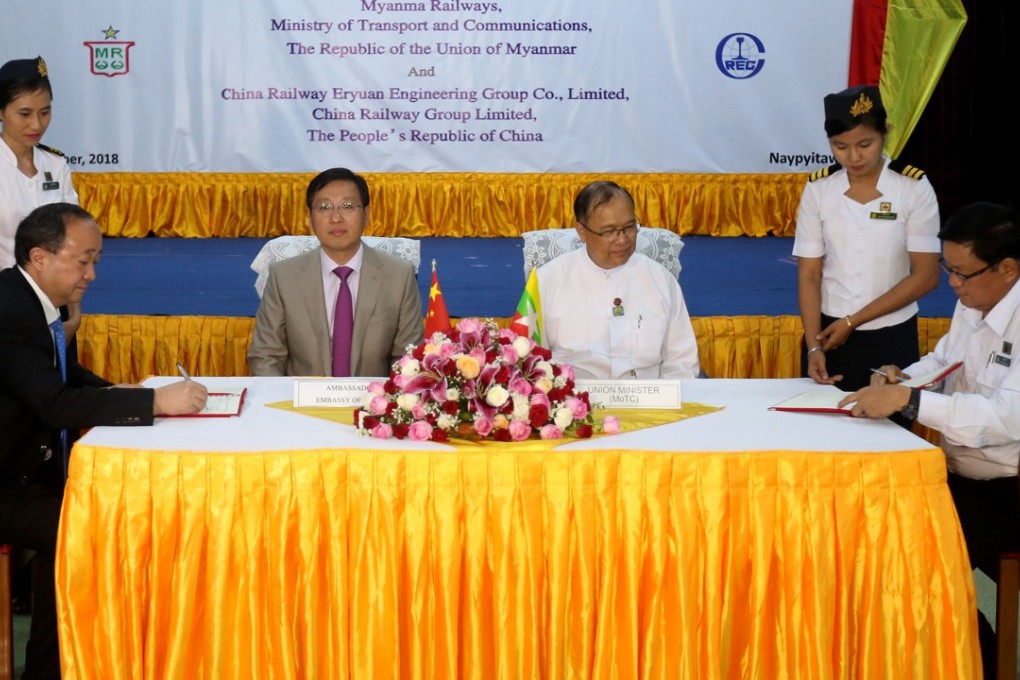China, Myanmar look into railway project linking Muse to Mandalay
- State-owned companies to begin feasibility study, four years after high-speed project was shelved
- Area is part of economic corridor connecting Yunnan province with key commercial centres in Myanmar

China and Myanmar are looking into the feasibility of building a railway line from their border to the city of Mandalay, four years after a high-speed project was shelved.
Two state-owned companies, China Railway Eryuan Engineering Group and Myanmar Railways, signed an agreement on Monday to begin the study on a proposed rail line from Muse to Mandalay.
Muse – a town in Myanmar’s northeastern Shan state that borders Yunnan province in southwest China – is the biggest land route for trade between the two nations, while railway service to central Mandalay could create a transport lifeline for the country’s north.
The route was first proposed under a high-speed railway deal signed in 2011, but the Myanmese government suspended the project three years later, citing public objections.
Discussion of a cross-border train project was put back on the table after Aung San Suu Kyi’s National League for Democracy took the country’s reins in 2015, ending decades of military rule.
The north of the country between Muse and Mandalay is seen as crucial to improving the connectivity of the southeast Asian nation. It is also part of the China-Myanmar Economic Corridor – linking Yunnan with key commercial centres in Myanmar – under Beijing’s vast trade and infrastructure push the “Belt and Road Initiative”.